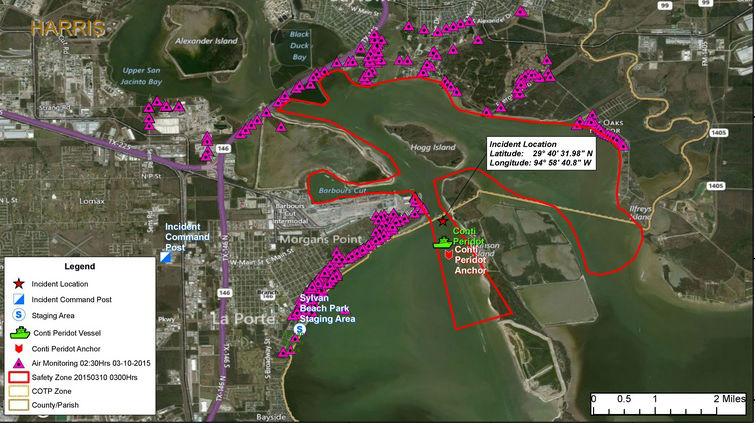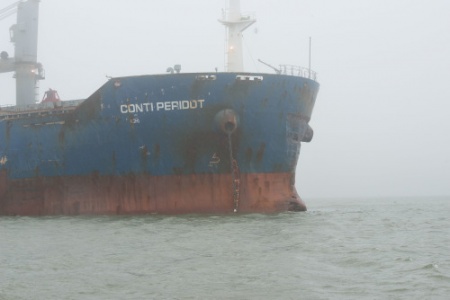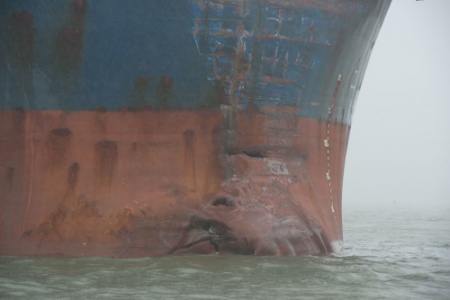How Will Everything Change under Climate Change?
The second in a major series of articles on the climate crisis and how humanity can solve it. In this extract taken from the Introduction to This Changes Everything by Naomi Klein, the author calls the climate crisis a civilisational wake-up call to alter our economy, our lifestyles, now – before they get changed for us.
You can read the first extract here.
Letter to the Editor, The Daily World
Bombs on trains. Infernos on wheels.
Such language represents the position of No Oil Trains.
This community quagmire puts many local mayors, the Quinaults, environmentalists and citizens against the Port of Grays Harbor and the power of Hoquiam’s city administrator.
Robert’s Rules usually allow a discussion before a vote. On this issue, most comments are coming after the Port Commissioners voted to approve crude oil train facilities and the City of Hoquiam signed off on building permits.
But the critics have not been silenced.
Yet, I know the Port Commissioner who represents me, Chuck Caldwell — a good man and avid fisherman who’s dedicated his life to Grays Harbor. One of the jewels in his crown is Friend’s Landing, a beautiful place that protects local wildlife.
I also know Linda Orgel from Friends of Grays Harbor, and she’s one of the kindest, most thoughtful people around. She goes out of her way to help neighbors and has spent a lifetime safeguarding the Harbor.
These two good people are on opposite sides of this argument, both trying to do the right thing. So it forces me to look beyond the sound bites, past the artificial choice of jobs versus environment to think about how these two people I admire can be so far apart.
And I realized the core issue is not about jobs or the environment at all.
It is about risk.
We all have different risk points. Some can bet the farm on a long shot. I usually pick the conservative fiscal path. That’s how I am wired.
On oil trains, the rewards are relatively small. This isn’t a huge economic boost to the Harbor, but when every job matters it is hard to dismiss.
The risks here are, however, massive.
Petition to Sign
Oil trains are carving a fiery pattern of disaster across our countryside. We have already seen more oil spilled from these trains in the past few months than in the previous 40 years combined, earning trains carrying crude oil a dirty nickname -- Bomb Trains. There's only one real solution that works for the planet: Leave the tar sands and other extreme oil in the ground. So just like we're working to shut down Keystone XL, we need to shut down the bomb trains to stop the dirtiest oil from threatening the safety of our communities
But President Obama and his Secretary of Transportation, Anthony Foxx, have been dragging their feet on regulations on Bomb Trains -- bowing to industry pressure that says it's "too expensive" to protect people and planet. With final regulations due in just a few weeks, we're running out of time to convince the president's team to take action.
Sign here!
Canadian Government “Concerned” After 2nd Tar Sands Train Explodes
Oil Change International, by Andy Rowell, March 11, 2015
But as Railway Age points out, as the crashes involved tar sands oil – whether dilbit, synbit or synthetic crude – is no safer than untreated Bakken crude. In fact it is starting to look like that all oil explodes in a derailment, across the whole crude spectrum from light Bakken to the heavy tar sands bitumen blends.
If this is the case, Railway Age argues then that the strategy for replacing older tanks with supposedly safer, newer ones “is based upon an entirely erroneous premise. The whole schedule must be recalculated, based on the evidence that bitumen, diluted for transportation, is simply not an ordinary crude oil fit for carriage in general-purpose tank cars.”
And now the Canadian press is waking up to the fact that transporting tar sands by rail is as dangerous as Bakken. “Concerns about the volatility of oil-by-rail shipments cannot be limited to the Bakken crude that was involved in the Lac-Mégantic tragedy and a spate of other major accidents”, reported the Globe and Mail earlier today.
The paper continued: “The revelation that the crude involved in the Ontario derailments was drawn from Alberta – and not from the Bakken – could widen the debate over the safety of shipping crude oil by rail.”
Media discovers Crude by Rail Issue!
via The Benicia Independent
[Editor: There is an incredible volume of news media postings and calls for action following the recent crashes and explosions in the U.S. and Canada. Here is a single day's postings for March 11, 2015, many thanks to Google. - RS]
via The Benicia Independent
[Editor: There is an incredible volume of news media postings and calls for action following the recent crashes and explosions in the U.S. and Canada. Here is a single day's postings for March 11, 2015, many thanks to Google. - RS]
Houston Ship Channel Remains Closed After Collision

At 12:41 p.m., watchstanders at Coast Guard Sector Houston-Galveston received a report of the collision between the Carla Maersk, a 600-foot chemical tanker, and the Conti Peridot, a 623-foot bulk carrier, which resulted in a puncture to three of the Carla Maersk’s port tanks. The chemical tanker was carrying approximately 216,000 barrels of Methyl Tertiary Butyl Ether prior to the collision.

 (Above: The bulk carrier Conti Peridot)
(Above: The bulk carrier Conti Peridot)
A collision between a chemical tanker and bulk carrier resulted in a spill of an unknown quantity of MTBE and prompted the Coast Guard Captain of the Port to close the Houston Ship Channel between light 86 and Morgan’s Point and initiate a shelter and place of the area surrounding Morgan’s Point and the Barbour’s Cut terminal.
An incident command post has been established at the City of La Porte Emergency Operations Center to further response efforts. Additional information will be released as it becomes available.
The cause of the collision is under investigation.
No comments:
Post a Comment